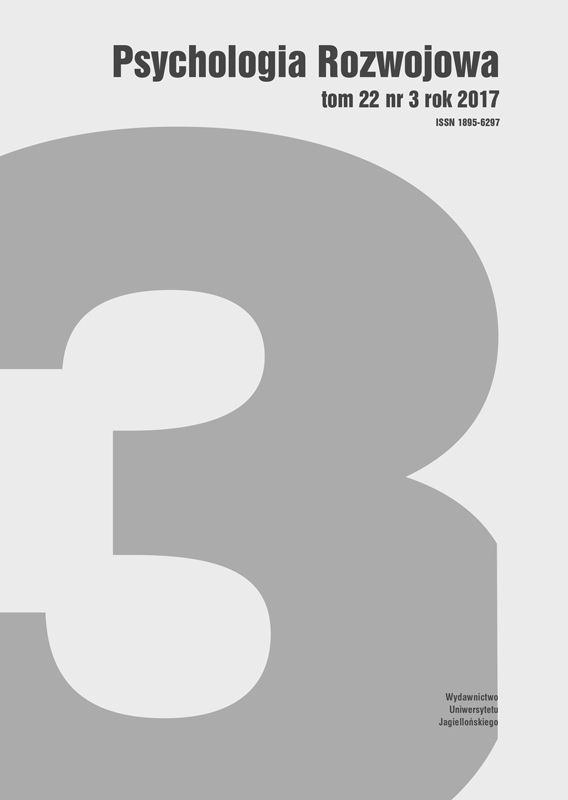Tego nie było, czyli o pamięciowym efekcie negacji przy stwierdzaniu nieobecności czegoś u dzieci w wieku przedszkolnym
It Wasn’t There: Negating May Cause Remembering Negated Ideas as Existing – in a Sample of Five and Six Year Old Children
Author(s): Józef Maciuszek, Paulina MaternaSubject(s): Psychology
Published by: Wydawnictwo Uniwersytetu Jagiellońskiego
Keywords: negation; memory; memory errors; nonexistence
Summary/Abstract: Studies of the acquisition of negative meanings suggest that rejection (refusal) is the first semantic category of negation children are able to express. The second negative function that is typically attested in children’s gestures and speech refers to the expression of disappearance or nonexistence – this function of negation is the topic of our study. In this article an experiment is presented demonstrating that negation can have paradoxical effects, making children believe that a negated idea actually existed. In the experiment, the participants (five and six year old children) listened to a description of a house, in which some objects were mentioned, some were negated, and some were not mentioned at all. After one day, when questioned about the existence of all the objects, the children gave more false alarms in the case of the negated items that the ones not mentioned at all. The results are discussed in terms of the inhibition and retention hypothesis.
Journal: Psychologia Rozwojowa
- Issue Year: 22/2017
- Issue No: 3
- Page Range: 57-67
- Page Count: 11
- Language: Polish

